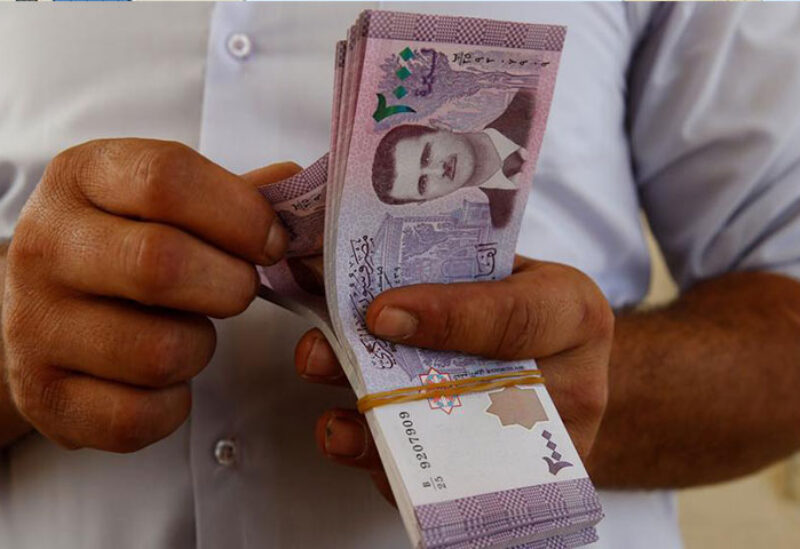
The Syrian pound recorded a new decline in the black market in regime-controlled areas, exceeding 8,000 against the US dollar, despite the increase in foreign remittances received during the holy fasting month of Ramadan and Eid al-Fitr.
Economists explained that the decline continued with the ongoing economic crisis and the regime’s inability to control the exchange rate despite all measures taken.
According to unofficial phone applications that monitor the black market, the exchange rate recorded SYP7,900 for purchase and 8,000 for sale to the US dollar.
The market witnessed relative stability during Ramadan month and Eid al-Fitr, maintaining a rate ranging between SYP7,400 and SYP7,600 per dollar.
Parallel-market exchange dealers told Asharq Al-Awsat there is a big demand for dollars in large quantities, explaining that the prices shown on applications were inaccurate, and no one sells for less than SYP8,300.
The Central Bank of Syria issues two different price bulletins daily; the Remittance and Exchange Bulletin and Banks’ Bulletin.
Asharq Al-Awsat spoke with several economists, some of whom pointed out that the exchange rate dropped during this season, unlike previous holidays, when the exchange rate was improving due to increased remittances from refugees and expatriates.
One expert, who preferred not to be named, believed the new decline in the currency rate was due to the government’s inability to control the exchange market despite all the measures it has taken.
He also noted that the authorities needed more dollars to finance imports after the decline in foreign money reserves from around $20 billion to zero during the war years.
The regime is now importing everything, such as fuel, wheat, basic foodstuffs, and industrial materials, said the expert, adding that the government desperately needs dollars.
Remittances of refugees and expatriates are the only declared source of dollars entering regime-controlled regions.
Many workers in exchange and money transfer companies operating in the regime-controlled areas confirmed that the daily transfers rate from abroad increased by 30 percent during Ramadan and Eid al-Fitr.
The director of the government’s Real Estate Bank, Ali Kanaan, said that remittances increased after the Central Bank increased the exchange rate approaching the black market price.
According to local media, Kanaan explained that foreign remittances are a resource for foreign exchange in the local economy, mainly that Syria’s economy suffers from a shortage in foreign exchange liquidity sources due to the Caesar’s Act and economic sanctions.
He noted that remittances amount to $10 million daily, which would allow funding for basic imports.
He said that despite all its measures, the regime failed to control the exchange market and seize the majority of incoming transfers to its regions.
Another expert pointed out that, in spite of the difference between the Central Bank’s rate and the parallel market, people receiving remittances prefer to exchange them on the black market. He said the employee’s monthly salary does not exceed SYP150,000 pounds.
Merchants also resort to the black market for their transactions, which increases the demand for the dollar, prompting a drop in the exchange rate.
The researcher described the situation as “very difficult,” expecting the exchange rate to reach SYP10,000 within months.
Asharq Al-Awsat noticed that supermarket owners were hedging the recent deterioration in the exchange rate by increasing the prices, some of them close to SYP10,000.
90 percent of Syrian citizens are below the poverty line due to the new wave in high prices, repeated whenever the exchange rate drops, further exacerbating their living conditions.